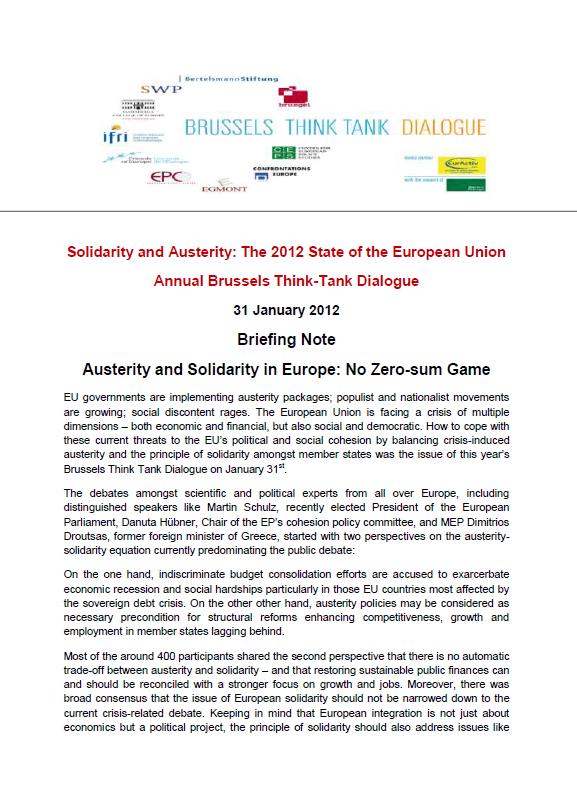Europe
Europe is described here in a geographical sense. It is not limited to the European Union, and includes, for example, the United Kingdom and the Balkans. It remains central to international relations.
Related Subjects

Greece: How a State in Crisis Manages Its Migration Crisis
In the past 2 years, Greece has experienced its most severe economic crisis of the post-World War II period. While it appeared at first not to have been hit particularly hard by the global economic recession that started in 2008, the effects of the recession and the acute internal crisis of public finances became visible in late 2009.
Dancing with the Bear: Managing Escalation in a Conflict with Russia
"Escalation", the tendency of belligerents to increase the force or breadth of their attacks to gain advantage or avoid defeat, is not a new phenomenon. Systematic thought about how to manage it, however, did not crystallize until the Cold War and the invention of nuclear weapons.
February Gas Pains in Europe - Coping Is Not Managing: the Italian Response to the Gas Crisis
The recent cold spell that gripped much of Europe was a test for the European gas network. In many countries temperatures fell dramatically to -10°C during the first week of February, even dropping a bone chilling - 22°C in some places.
As the European Commission(s Director General for Energy Philippe Lowe said during a speech at our Annual Conference last Thursday (February 16) in Brussels, Europe(s gas network was able to respond to the sharp increase in demand despite a simultaneous drop in supply from Gazprom.
2012, a turning point for Europe in space
In 2012, several crucial decisions lie ahead, most notably at the ESA Ministerial Council next fall and regarding the status of space within the next MFF of the EU. These will reveal the degree of political will to pursue an ambitious ESP in times of economic and financial constraint.
Migration Policy and Irregular Workers in the United Kingdom
While public opinion and European governments usually present migrants as an outside threat for European societies, in this article, Danièle Joly and Khursheed Wadia focus on the local level to analyze the issue of migrants, in particular irregular workers, living in the UK.

The 2012 State of the European Union: Austerity and Solidarity in Europe
The European Power System - Decarbonization and Cost Reduction: Lost in Transmissions?
Europe’s energy policy is commonly defined by three axes of equal importance: security of supplies, competitiveness and sustainable development. The European Commission is mandated to develop the policy tools that allow the implementation of this common policy. Early on, challenges arose from the trade-offs to be made not only between these three pillars but also between a common European policy and national approaches. The European Commission has always had to struggle in attempting to keep a balanced line.
One Year Before the Election: Countdown to a Second Term?
Ifri's December conferences have become a staple event for Europeans eager to understand the evolutions underway in the United States. For our tenth edition, we discussed the main specificities of the U.S. judiciary system and their impact on non-U.S. citizens and entities, the up-coming presidential elections, the economic situation of a country caught between the debt and a recession, and finally, the evolution of U.S. attitudes vis-a-vis the upheavals in the Arab and Muslim World.

Political Europe: Is Hope Reasonable?
The European crisis is primarily the result of economic difficulties and their social effects.
Key Trends in the European Earth Observation Sector
An ambitious Earth Observation (EO) policy could bring significant benefits to Europe both regarding the fight against climate change and the competitiveness of its EO industry and service sectors.
Support independent French research
Ifri, a foundation recognized as being of public utility, relies largely on private donors – companies and individuals – to guarantee its sustainability and intellectual independence. Through their funding, donors help maintain the Institute's position among the world's leading think tanks. By benefiting from an internationally recognized network and expertise, donors refine their understanding of geopolitical risk and its consequences on global politics and the economy. In 2025, Ifri supports more than 80 French and foreign companies and organizations.










